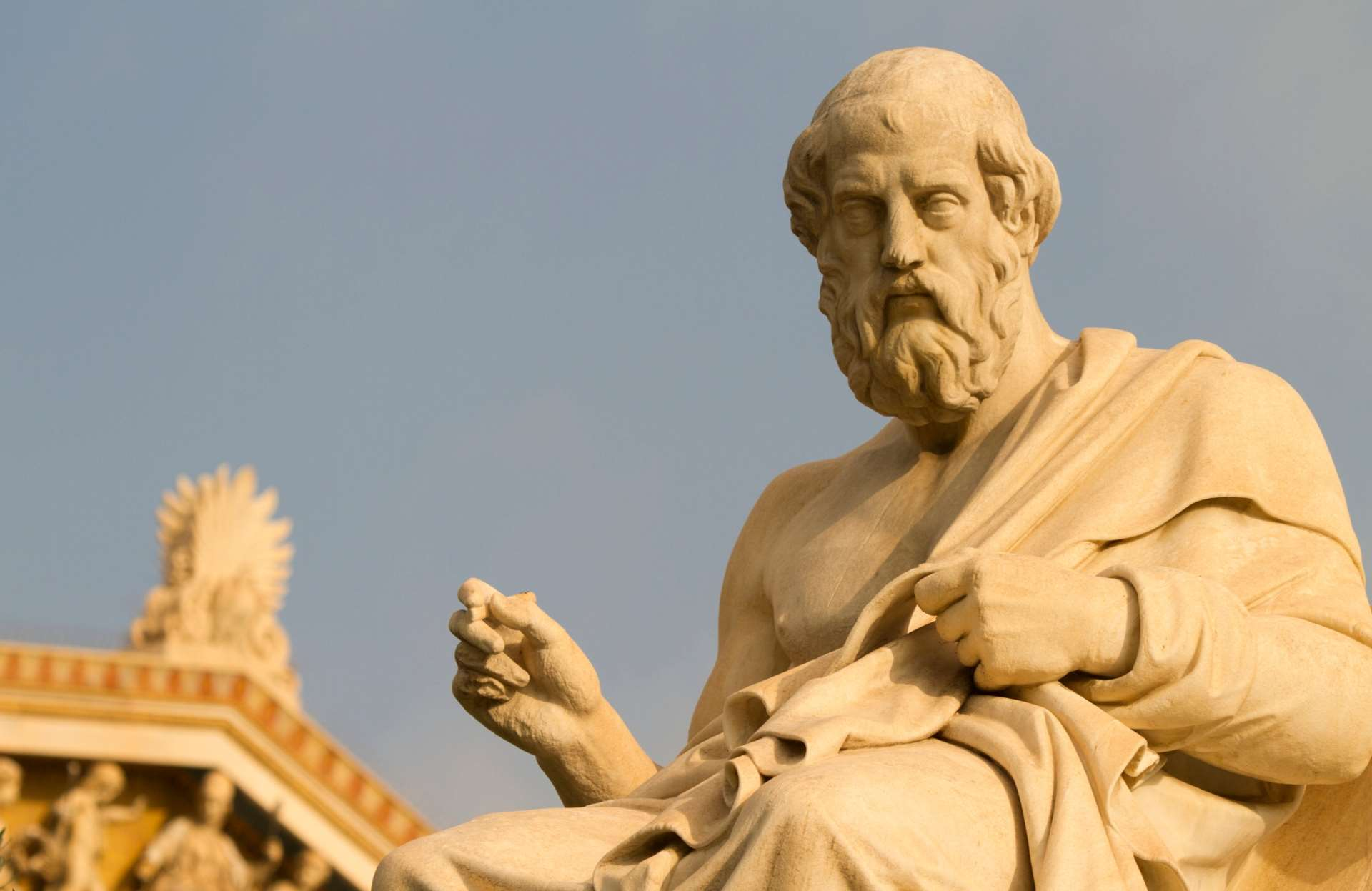Ancient Greek philosophers were always a few steps ahead of time. They were wise, observant, and spent hours in considerations about the world, nature of things, truth, society, feelings and desires, etc. What they saw, they were trying to explain through logic and reason. This was a revolutionary approach compared to mythological explanations dominating back then, often rejected by the masses and life-threatening for the philosophers themselves.
However, their ideas and teachings paved the way for western philosophers, and received continuation in modern works and papers on mathematics, social science, universe, and even in the movie industry.
The teachings of Ancient Greek philosophers date back to the period between the 7th century B.C. and the 1st century A.D. Then, five major philosophic schools were formed. But before we dive into their history, it is important to mention the contribution of the earlier philosophers who laid a solid foundation for their successors.
Early Greek Philosophers
Thales of Miletus (625-546 BC) was a mathematician, an astronomer, and a philosopher and the one to predict a solar eclipse. His contribution also includes five geometry theorems, including the one that says that only a triangle with the right angle can be fit into a semicircle. He had a huge interest in observing and studying natural matters and was the first to claim that water was the key element of things. Thales is also considered to found the school of natural philosophy.
Pythagoras (570-495 BC) is another prominent Greek philosopher and mathematician, most famous for his Pythagorean Theorem, which to this day, is one of the fundamental rules of geometry used to perform calculations in engineering, construction, and many other areas. In his days, he started a group of followers called Pythagoreans and cultivated mathematics and numbers in his teachings. Pythagoras is also credited with the discovery of Venus and the round nature of our planet, as well as the existence of both evening and morning stars.
Socrates (469-399 BC) is one of the most known Greek philosophers who is considered the founder of modern Western philosophy. A simple stonemason, he never put his thoughts to writing but preferred to communicate his ideas to his students, with Plato among them.
His most important philosophic contribution is Socratic Method, in which arguments, dialogue, and debate serve to stimulate critical thinking and draw out ideas leading to the verity. Socrates was sure that philosophy could have a practical implementation for the greater good of people, and encouraged them to critically question information and knowledge. Eventually, his critical attitude about religion brought him to death. However, it gave rise to studying the secrets of life itself.
Platonism
A Socrates’ most prominent student, Plato (428-348 BC) is the founder of one of five famous Hellenistic philosophic schools, the author of works on nearly every philosophic subject, and the inventor of the written dialogue.
As his teacher, Plato strongly criticized democracy. He wrote about almost every major issue in philosophy, but his teachings about the universe and politics deserve special attention. Particularly, his Utopian “The Republic” has become one of the most significant works on politics. Plato was also the founder of the first Athenian higher education institution called the Academy.
Aristotelianism
Aristotle (384-322 BC) learned from Plato and is considered one of the greatest Greek philosophers up to date. He studied government, politics, science, rhetoric, logic, and made a great contribution in each of these areas. Particularly, he was the first to invent the field of formal logic and identify different scientific disciplines and describe how they relate.
In 335 B.C. he founded a school called Lyceum, which served to spread his teachings, which later had a colossal impact on Western, Indian, and Arabic philosophy.
Stoicism
Stoicism is the school in Hellenistic philosophy which was founded by Zeno of Citium in the 3d century B.C. Along with Aristotelian ethics, the Stoic traditions have also contributed to the formation of the virtue of ethics. According to Stoic philosophy, true happiness was in a complete serenity, which could be achieved through studying and freedom from needs and desires. Although Stoics didn’t call to refuse from relationships, material pleasures, or success, they trained themselves to be independent from them. Stoicism had a tremendous impact on Western philosophy. Among its most loyal followers were Emperor Marcus Aurelius, Rene Descartes, and Thomas Hobbes.
Epicureanism
Among Greek philosophers, Epicurus is the one to falsely gain an ill reputation, especially among students using philosophy paper help from laymen. His philosophy was centered around the search of pleasures in life. However, his teachings are often misinterpreted as the call to indulge in the most filthy pleasures of body.
In reality, Epicurus used to seek moderation in every aspect of his life, while true pleasure and inspiration he saw in deep friendships, art, music, and literature. Epicureans also believed in multiple worlds, and the chance nature of things.
Skepticism
The earliest skeptic figure known up to date is Pyrrho of Elis. Clearly influenced by the emerging Buddhist teachings, Pyrrho saw the refusal to make judgments as the way to reach tranquility, which led to happiness. He considered that every human had to be in the state of constant exploration.
More extreme skeptics, the followers of Academic skepticism first introduced by Arcesilaus of Pitane, however, claimed that everything should be doubted including the fact that everything can be doubted itself.
The skeptic ideas have greatly influenced a lot of major Western philosophers, including Rene Descartes, George E.Moore, and Ludwig Wittgenstein. This teaching received further development in the movie industry with the release of “The Matrix” in 1999.









